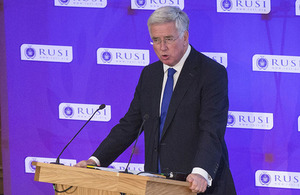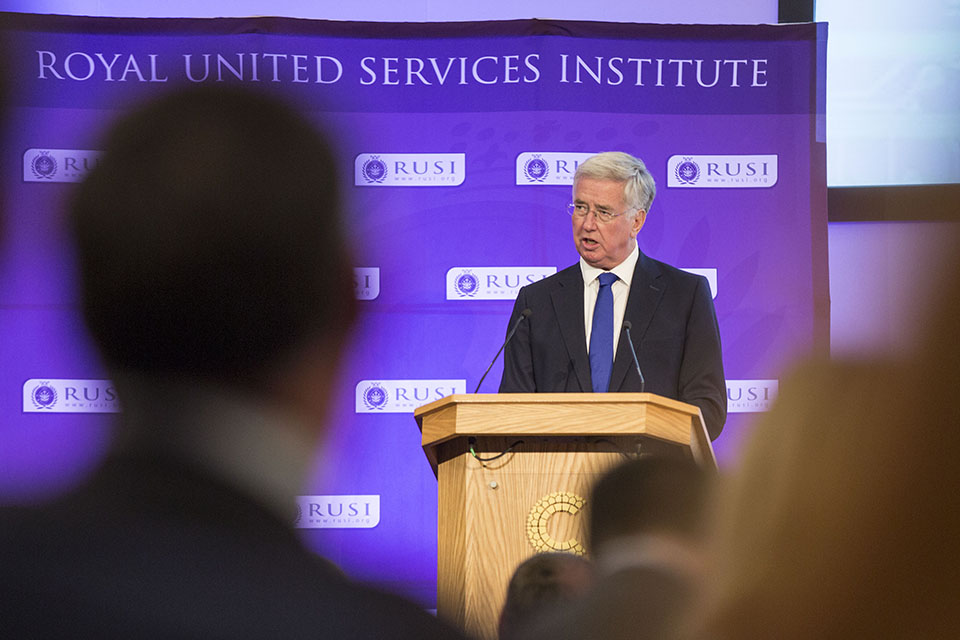Defence Secretary announces major cyber investment
The UK will invest up to £265m to boost the defence of military cyber systems, the Defence Secretary has announced.

Defence Secretary Michael Fallon spoke at the second RUSI Cyber Symposium. Crown Copyright.
Michael Fallon said the investment, which supports the new Cyber Vulnerability Investigations (CVI) programme, will help the MOD better understand cyber risks.
Speaking at the second International Cyber Symposium Mr Fallon said it will also help the MOD ensure that resilience to cyber-attack is built-in when buying equipment in future.
Defence Secretary Michael Fallon said:
Cyber-attack is one of the greatest challenges to our security. It’s crucial we use our increasing defence budget to stay ahead and investing in this programme will help us protect against these threats.
The programme will complement the work of the Cyber Security Operations Centre (CSOC), the £40 million facility announced in April to use state-of-the-art cyber capabilities to protect the MOD’s cyberspace from malicious actors.
The programme has also benefited from detailed analysis across the full range of potential cyber-attacks, meaning it is dynamic and can be applied to all aspects of MOD digital systems.

Defence Secretary Michael Fallon spoke at the second RUSI Cyber Symposium. Crown Copyright.
The funding follows the UK and US signing a Memorandum Of Understanding to work more closely together to overcome the growing cyber risk.
Separately the UK and France confirmed greater co-operation to defeat this threat under the Lancaster House Agreement.
Today’s announcement comes on the same day that Minister for Defence Procurement Harriett Baldwin launched the next phase of a €150 million joint Maritime Mine Counter Measures (MMCM) programme alongside her French counterpart, Laurent Collet-Billon.
Working with French allies, the programme will develop cutting edge maritime mine warfare capability to keep the UK and France at the forefront of autonomous systems technology. The development and deployment of unmanned mine clearance drones will help keep our personnel safe in challenging maritime environments.
As part of our £178 billion equipment plan, the programme will be supported by a defence budget that will rise every year until the end of the decade, meeting the NATO commitment to spend two per cent of GDP on defence.